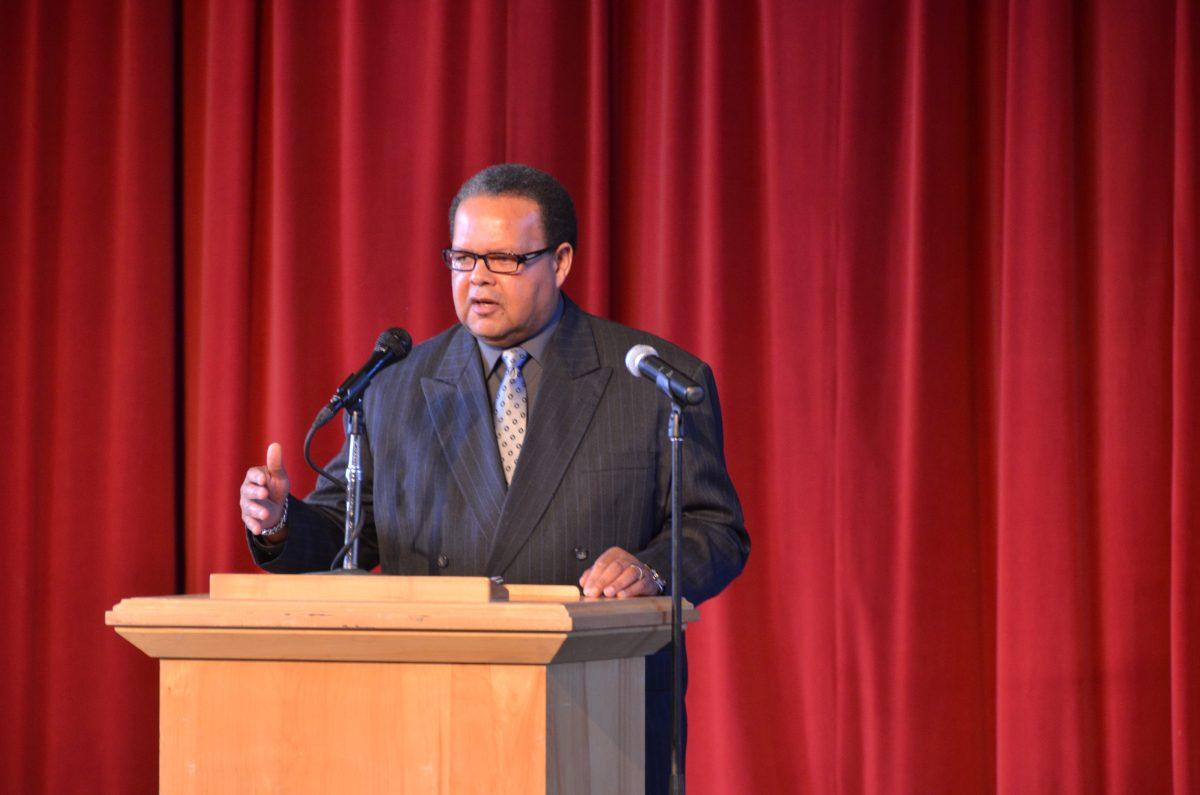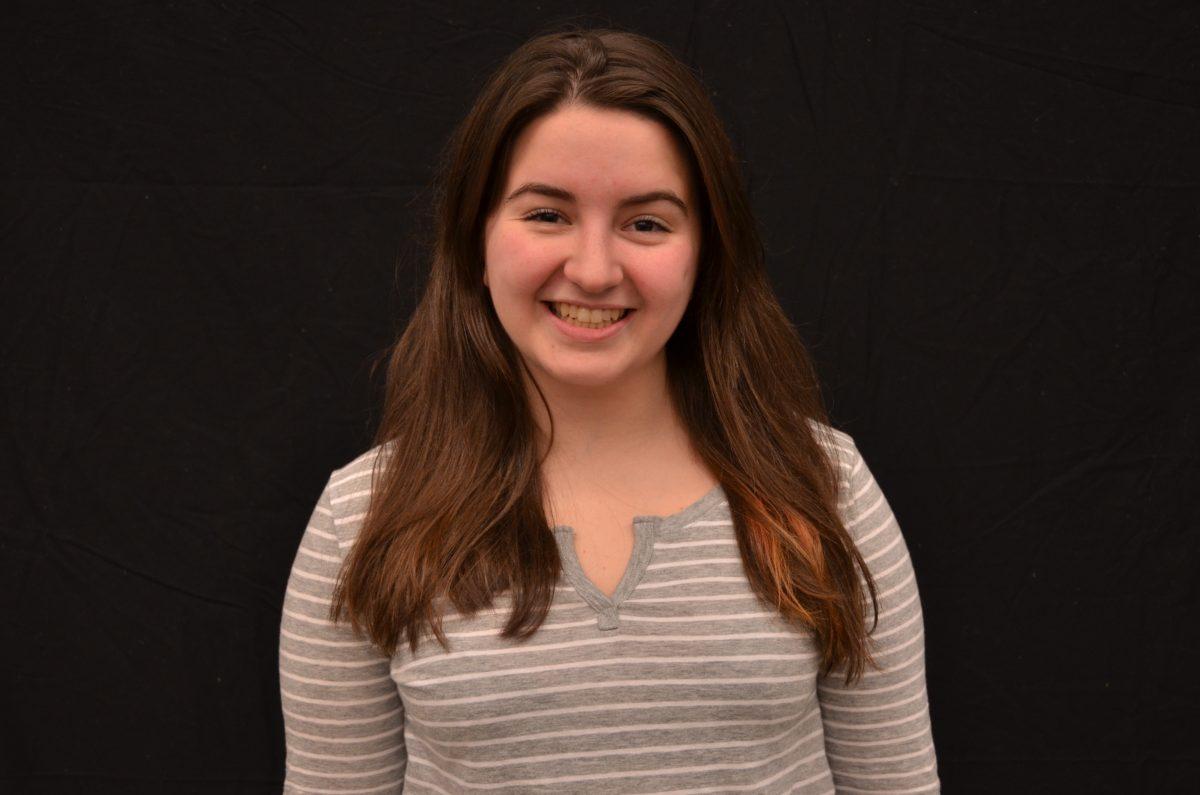Oregon’s first Chief Education Officer Rudy Crew remembers not wanting to get up and go to school in the morning. His father, a single parent, was a custodian at his nearby high school.
“Son, I get up and clean toilets every day. That’s hard work, son. Tell me how hard it is for you to get up, put on your shoes, and get what, a grade? Man, I wish I had the opportunity,” Crew’s father would tell him when his son wouldn’t get out of bed.
Not wanting to go to school is something all high school students experience, but Crew came soon saw opportunity where others saw the unreachable. From living in Harlem, surrounded by “functionally illiterate” folks, Crew now comes to Oregon as the Chief of Education Officer. His history has shaped his ideologies for education and philosophies in motivating young people.
“If you follow the statistics, kids who come from New York City and live where I live, I’m not supposed to be here,” Crew says.
Crew spoke during Grant’s Multicultural Assembly, sending a clear message to students that no matter their background, they can achieve anything they set their minds to. With so few African-American students qualified to attend two or four year colleges, Crew had more than a few words that were not only encouraging, but also a wake-up call.
“There’s been a long time in black history where anything below par is okay for you. Anything is okay as long as it does not make you competitive with anyone else,” Crew said during his speech.
With plans and ideas that will change Oregon schools during these upcoming years, Crew talks to Grant Magazine about his ideas and how he came to Oregon as a native New Yorker.
Q: Your mother passed away when you were two, and you were raised by your dad. What was it like for you growing up, and how have those experiences shaped who you are today?
Crew: My father would give me a hard shake to wake me up every morning and then he’d stick his head right up next to my ear and say, “Rudy, it’s time to get up. Sun’s coming up and something good is going to happen today.”
He had lots of reasons to stay in bed every morning, but for as long as I lived under his roof, he didn’t just get himself up and out; he launched me and my two sisters out into the world of expectations for ourselves and for the day.
Q: Can you tell me a story about a person really inspired you?
Crew: Gloria Connally was a surrogate mother, and I remember when I was about 8, I went with her to the bank to cash a check. When the teller said she had to read something and sign here, I could tell Gloria was having trouble and was embarrassed. She quickly closed her purse and said we had to go. That day I became a teacher when right then I started teaching Gloria how to read. It was a fire-in-my belly feeling—this should never happen to anyone. No person should ever be this hurt or humiliated.
Q: What had you heard about Portland Public Schools before coming to Oregon? What kind of expectations did you have when Kitzhaber offered you this job?
Crew: I had actually applied to be superintendent at Portland Public many years ago. I had known about Portland Public because I knew it had a tremendous amount of potential, there were some outstanding teachers and schools. I had heard how about how passionate and invested your teachers were. My hope was that I would have a chance to have a lot of interaction with Portland schools.
Q: Wow, how did you hear about all of that? Oregon is so far from New York, what sparked your interest?
Crew: Yeah, but at the time I had finished as chancellor with New York City Schools. I was ready to go back into working with schools on a more personable level. I felt like it was the right kind of community for someone who cares about schools and schooling and wants to move to the next level of organizational development.
Q: What had you heard about Grant?
Crew: I had heard about it from Julia Brim Edwards and in talking to people. She spoke particularly highly about Grant, about there being so much potential in the districts, and Grant was one of the top schools. I knew Grant was one of the schools in the district I had to visit.
Q: I have to say, your speech during our assembly was great. It sounded like you were reaching out beyond the African-American community. What inspired you or what were you considering when you wrote that speech?
Crew: You know what’s interesting, I don’t like my speeches. I didn’t write this, this was sort of just off my head and out of my heart. Like anything else that is your passion, it comes almost in a spiritual way. Leadership is a willingness to be vulnerable, being 100% yourself. It’s the common bond in the humanity of everyone.
Q: What changes would you like to see in our education system?
Crew: I’d like to see us get a better handle on the high school experience. We ought to start having more opportunities for kids to use their skills. I’d like to see more applied learning, something that you can really see that matters. Reducing the achievement gap. There are just lower level courses being taken by students who don’t feel like that can take higher level courses. I want to help parents see that this is what you need to work and play in this society; you need to work at a higher level.
Check out the rest of our Time With interviews for more brief snapshots of Grant community members.









































